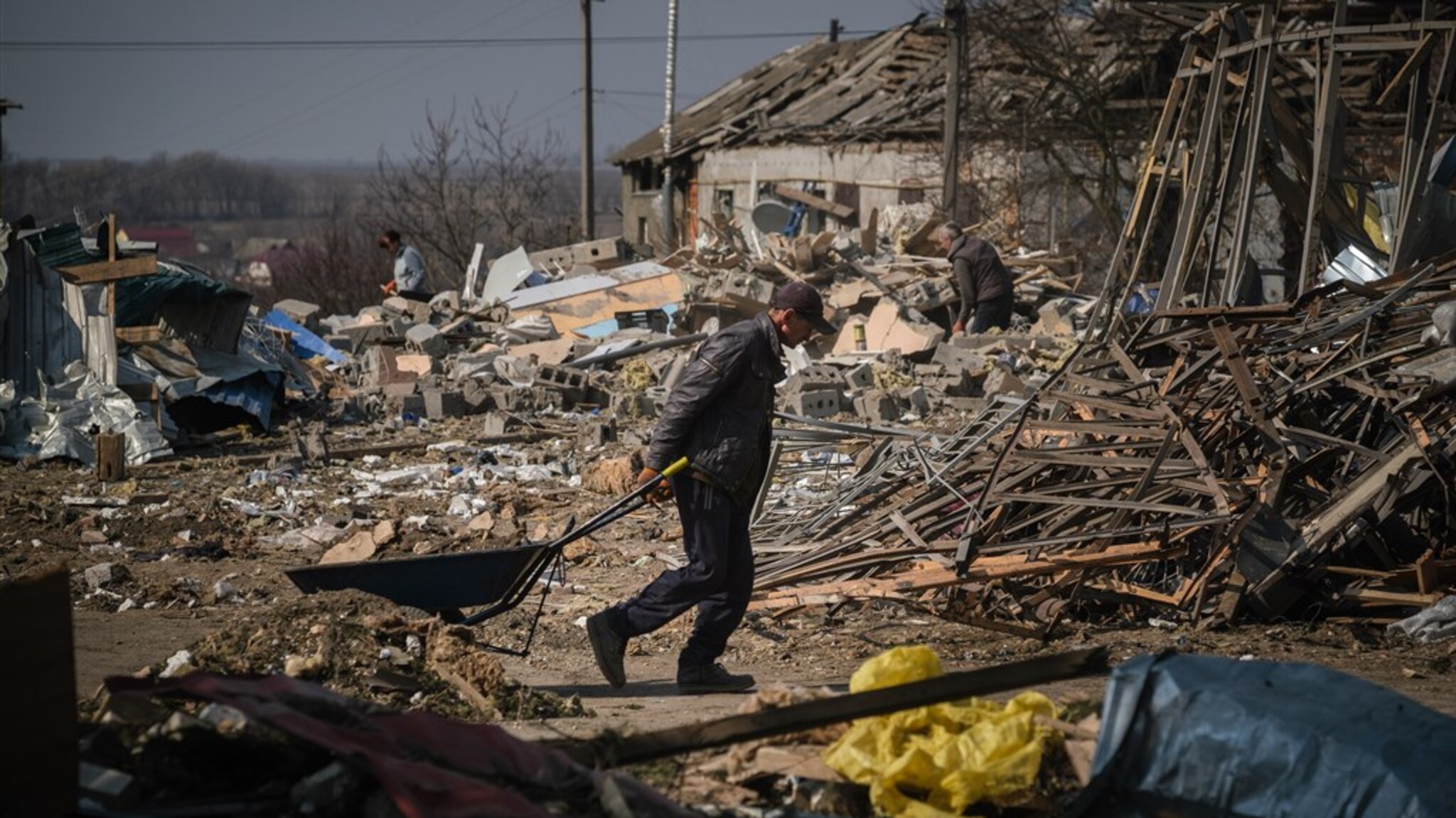It looks like a sudden turn in the war in Ukraine. Yesterday, Russia described the first phase of the battle as “completed”. According to them, the Ukrainian armed forces are weak enough, and they have the ability to fight for what they really want: the conquest of the eastern region of Donbass.
1. How do we interpret the Russian letter?
We ask Laurien Crump, associate professor of history at the University of Utrecht. “It seems to be a sign that the Russians are beginning to understand that they will not succeed in occupying all of Ukraine. And that they will not succeed in overthrowing Ukrainian President Zelensky. Because they already have many troops in the east, they say. We are now focused on that.”
Incidentally, Crump says it’s not that the first phase of the war has been completed. “Putin has previously described the invasion of Ukraine as a peace mission. With yesterday’s statement, he is trying to convince the Russian people that the peace mission is succeeding. In fact, this is just a major change of course.”
2. How will the war continue?
“The more realistic scenario is that the fighting goes on for a while and the Russians see if they can take control,” Crump said. “At least they want to conquer Mariupol and also Kyiv.” So, it is not the area that the Russians themselves want to focus on now. “They probably won’t stop until they at least get what they want, so they have a big trump card on the table.”
But at the same time, in Kyiv, it is mainly the Ukrainians who strike back:
Rob de Wijk, founder of the Hague Center for Strategic Studies, also speaks at the negotiating table. This relates to the idea that the war could be over in a few weeks or months. “Both sides have an interest in a peace agreement. There will be territorial gains for both here and there, and the situation is still in equilibrium. At a certain point they are tired and a peace agreement will be reached.”
However, according to Crump, we should not immediately assume a positive outcome at the negotiating table. “There are a number of demands that countries do not want to agree to from each other. The negotiations are now mainly on the stage. Putin can show Russia that he is interested in peace, because he is selling the invasion as a peace mission,” he said.
3. What countries can mediate?
In any case, both experts agree on which country it should not be, although the country is often mentioned. “It’s so wonderful that so many people have pinned their hopes on China,” says de Wijk. “Chinese President Xi Jinping’s interference should be a really low point. You shouldn’t give him such an important position.”
Crump: “If China asked Putin to order, that would certainly change the conflict. But China wouldn’t. They’ve been very isolated so far and will continue to do so.”
“It is likely that the leaders of Turkey or Israel will play a mediating role,” Crump said. “They have already established themselves as mediators and are reliable partners of both Ukraine and Russia. Ukrainian President Zelensky, for example, has already indicated that he wants to meet Putin in Jerusalem.”
4. Can the Russians themselves summon Putin?
“You can see that there is more criticism on the part of Russia itself,” says de Wijk. “Many young, highly educated people have left Russia. There are also more and more journalists who are critical or have quit the state media. There are a few more oligarchs who are pressing for an end to the war.”
“However, the impact is still very limited. There is also a problem with the oligarchy that if they can overthrow Putin, they will also fall. So many of them don’t benefit at all from being critics.”
Crump also received cracks from the inside. “It is important that Putin expelled two people from his entourage. But the real turning point is only when members of the highest military do not trust Putin and turn against him. This may have an effect, but at the moment this is not the case yet.”
5. What could be the other turning points?
According to Kramp, one thing is very clear: a possible Russian invasion of Mariupol. “So, Russia has an important balance for negotiations. The question is what will Ukraine do next. Will it comply with Russia’s demands because it is under pressure, or is it more afraid of giving up?”
According to de Wijk, negotiations can still have a negative impact if they take too long. Putin could suddenly get tired of it and then use nuclear weapons because he thinks it would mean a quick end to the war.
However, according to Crump, the use of nuclear weapons is not yet on the agenda. “Russia has recently indicated that it will use nuclear weapons if it feels threatened. It will not be because of Ukraine, but if NATO countries intervene. And it seems that they, in turn, are doing their best to get out of the conflict. Although the war has also shown that they should never rule out anything completely.”







